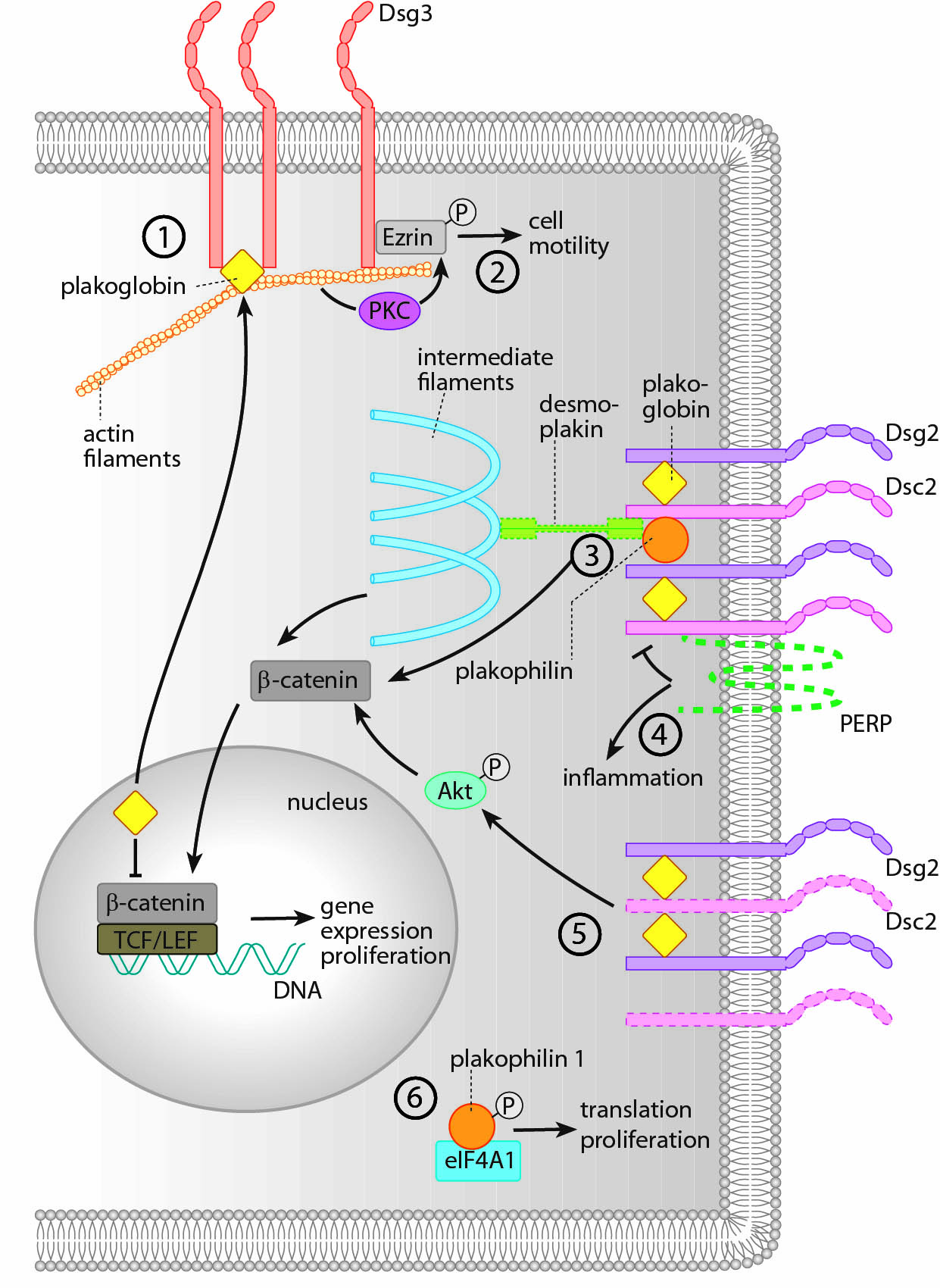Role of desmosomes in tumor biology
Volker Spindler (group leader),
Katharina Hütz (postdoctoral fellow),
Marlene Delivuk (technician)
Cell adhesion molecules are involved in steps required to transform stationary tumor cells into metastatic, invasive cells. For instance, epithelial-mesenchymal transition is associated with a change in the expression of cadherin-type adhesion moelcules such as E-cadherin and N-cadherin. For the cadherins of the desmosomes, the desmogleins (see here) and desmocollins, the situation is largely unclear. Several isoforms were reported to be downregulated in different tumors whereas others were upregulated. It is also under investigation whether these changes modulate tumorigenicity. Several mechanisms how desmosomal molecules may regulate tumor behavior are shown in Fig. 1.

Fig. 1: Regulation of tumor cell malignancy dependent on desmosomal molecules
In this newly started project we investigate how desmosomal cadherins influence migration and invasive behavior of tumor cells derived from different highly relevant tumors (pancreatic adenocarcinoma, colorectal adenocarcinoma). Especially we focus on pathways that are altered by lost or increased expression of desmosomal molecules.
Recent publications (2013 to present):
Spindler V, Meir M, Vigh B, Flemming S, Hütz K, Germer CT, Waschke J, Schlegel N (2015). Loss of desmoglein2 contributes to the pathogenesis of Crohn’s disease. Inflamm Bowel Dis, in press
Hütz K, Mejías-Luque R, Farsakova K, Ogris M, Krebs S, Anton M, Vieth M, Schüller U, Schneider MR, Blum H, Wagner E, Jung A, Gerhard M. (2014). The stem cell factor SOX2 regulates the tumorigenic potential in human gastric cancer cells. Carcinogenesis. Apr;35(4):942-50

